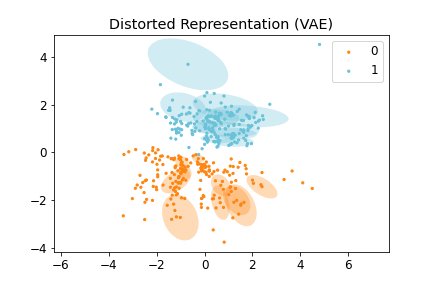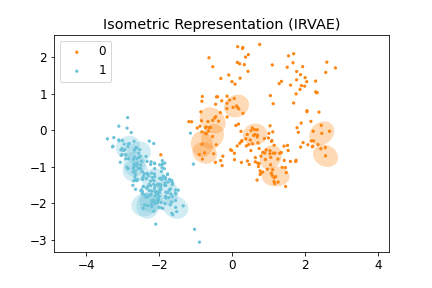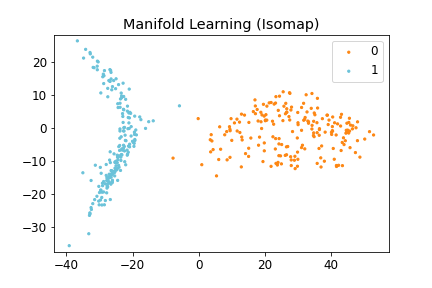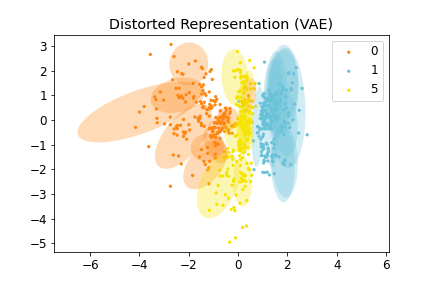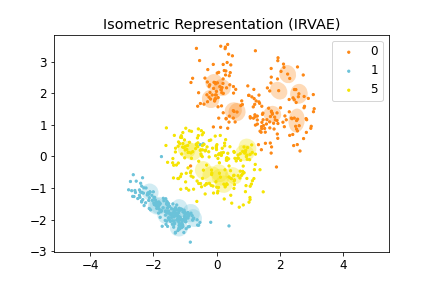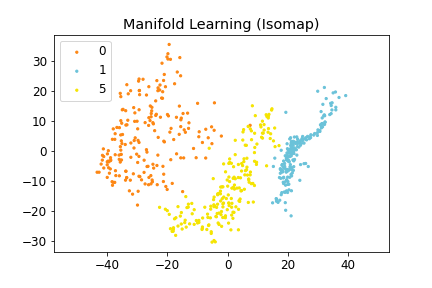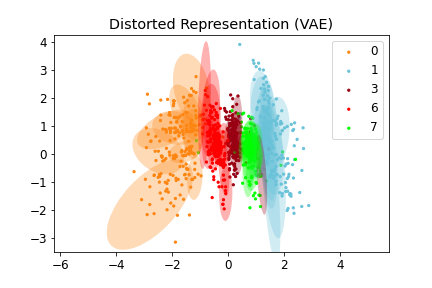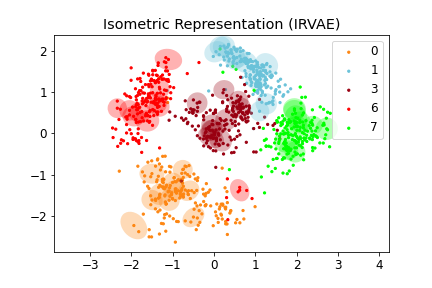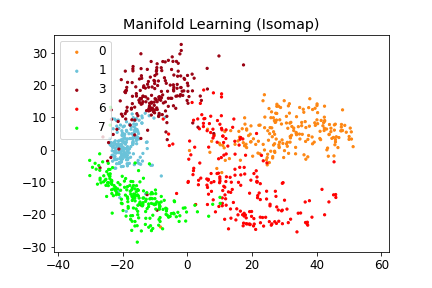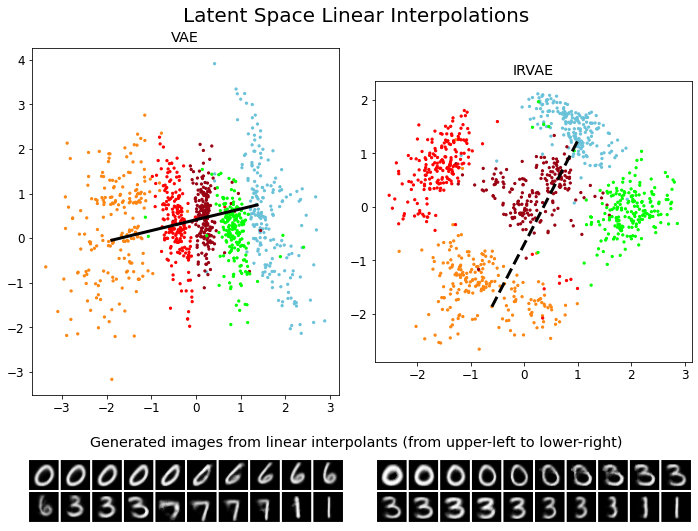The official repository for <Regularized Autoencoders for Isometric Representation Learning> (Lee, Yoon, Son, and Park, ICLR 2022).
This paper proposes Isometrically Regularized Variational Autoencoders (IRVAE), a regularized autoencoder trained by minimizing the VAE loss function + relaxed distortion measure. It produces isometric representation where Euclidean distances approximate geodesic distances in the learned manifold.
def relaxed_distortion_measure(func, z, eta=0.2, create_graph=True):
'''
func: decoder that maps "latent value z" to "data", where z.size() == (batch_size, latent_dim)
'''
bs = len(z)
z_perm = z[torch.randperm(bs)]
alpha = (torch.rand(bs) * (1 + 2*eta) - eta).unsqueeze(1).to(z)
z_augmented = alpha*z + (1-alpha)*z_perm
v = torch.randn(z.size()).to(z)
Jv = torch.autograd.functional.jvp(
func, z_augmented, v=v, create_graph=create_graph)[1]
TrG = torch.sum(Jv.view(bs, -1)**2, dim=1).mean()
JTJv = (torch.autograd.functional.vjp(
func, z_augmented, v=Jv, create_graph=create_graph)[1]).view(bs, -1)
TrG2 = torch.sum(JTJv**2, dim=1).mean()
return TrG2/TrG**2- To implement the relaxed distortion measure for your decoder or generator function, you can simply copy and paste the above code block.
Figure 2: (Left) Distorted Representation obtained by VAE, (Middle) Isometric Representation obtained by IRVAE, and (Right) Isometric Embedding obtained by Isomap (non-parametric manifold learning approach). Ellipses represent pullbacked Riemannian metrics; the more isotropic and homogeneous, the more isometric.
Figure 3-1: (Left) Distorted Representation obtained by VAE, (Middle) Isometric Representation obtained by IRVAE, and (Right) Isometric Embedding obtained by Isomap (non-parametric manifold learning approach). Ellipses represent pullbacked Riemannian metrics; the more isotropic and homogeneous, the more isometric.
Figure 3-2: Latent Space Linear Interpolations and Generated Images in VAE and IRVAE.
The project is developed under a standard PyTorch environment.
- python 3.8.8
- numpy
- matplotlib
- argparse
- yaml
- omegaconf
- torch 1.8.0
- CUDA 11.1
- tensorboard
python train.py --config configs/mnist_vae_z2.yml --run vae_mnist_{digits} --data.training.digits list_{digits} --data.validation.digits list_{digits} --device 0 python train.py --config configs/mnist_irvae_z2.yml --run irvae_mnist_{digits} --data.training.digits list_{digits} --data.validation.digits list_{digits} --model.iso_reg 1000 --device 0 - If you want the training dataset to include MNIST digits 0, 1, and 2, you should set
digitsas012. For example,digitscan be01,015, or24789. - The result will be saved in './results' directory.
tensorboard --logdir results/-
Scalars: loss/train_loss_ (training loss function), loss/val_loss_ (reconstruction error), iso_loss_ (isometric regularization term), MCN_ (mean condition number)
-
Images: input_ (input image), recon_ (reconstructed image), latent_space_ (latent space embeddings with equidistant ellipses)
- In 'notebook/1. MNIST_results.ipyng', you can find the figure generation code.
If you found this library useful in your research, please consider citing:
@inproceedings{
lee2022regularized,
title={Regularized Autoencoders for Isometric Representation Learning},
author={Yonghyeon Lee and Sangwoong Yoon and MinJun Son and Frank C. Park},
booktitle={International Conference on Learning Representations},
year={2022},
url={https://openreview.net/forum?id=mQxt8l7JL04}
}
